The 9th International Conference in Software Engineering Research and Innovation (CONISOFT 21)
San Diego Global Knowledge University
________________________________________________________
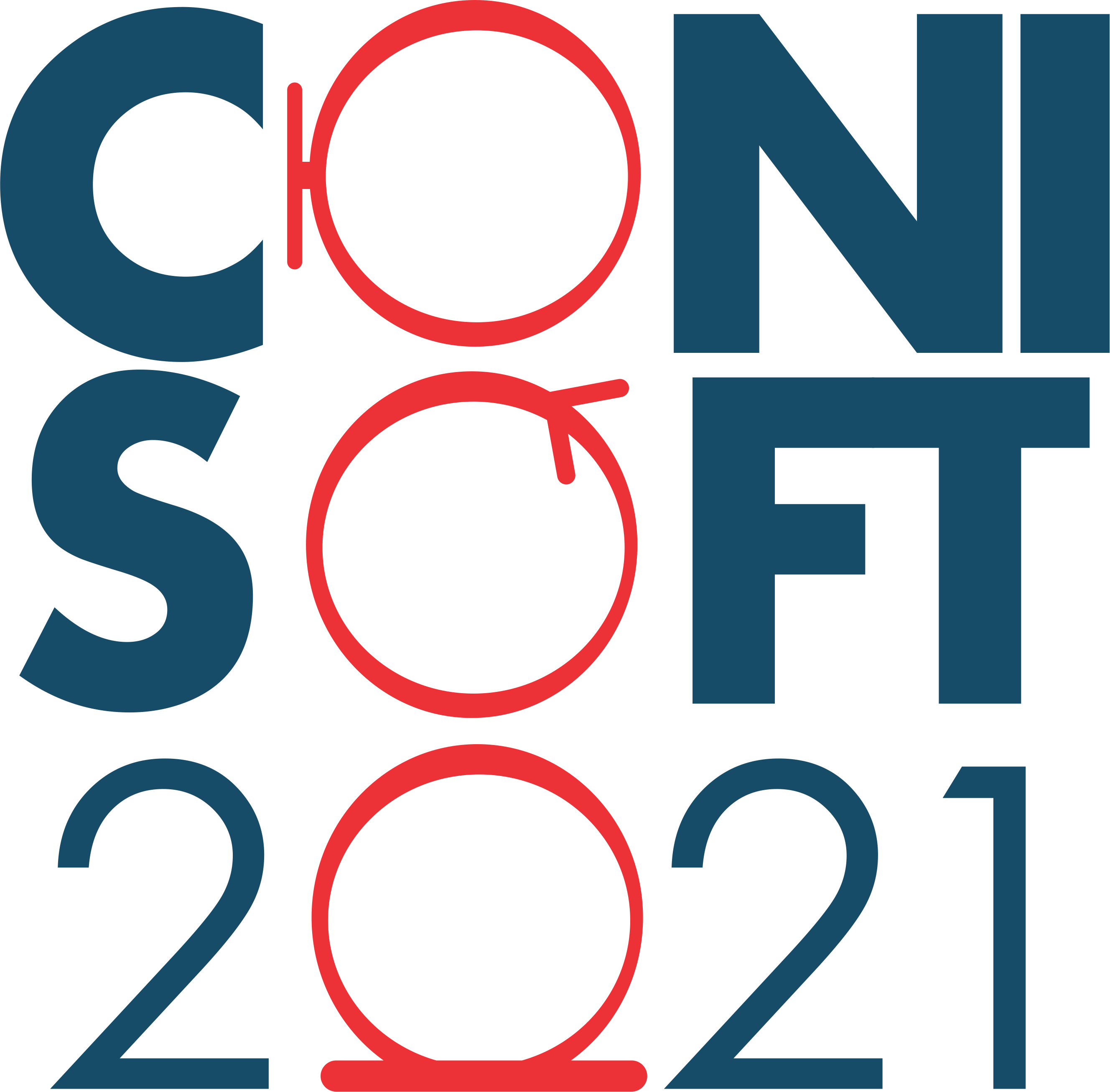



________________________________________________________




Regarding the COVID 19 pandemic, to safeguard the health of participants, CONISOFT 2021 entire conference will take place virtually.
The 9th. International Conference in Software Engineering Research and Innovation (CONISOFT 2021) will be held at San Diego Global Knowledge University, in San Diego, CA, USA, October 25-29, 2021. The purpose of the conference is to bring together practitioners and researchers from academy, industry, and government in order to advance the state of the art in Software Engineering, as well as generating synergy between academy and industry, defining a collaboration strategy to support and promote the development of the software industry in Mexico and worldwide. Papers that combine theory and practice are especially welcome.
Paper Submission: June 13 June 27, 2021

Conference: An Overview of Software Quality Assurance and the ISO/IEC 29110 Series of Standards and Guides for Very Small Entities
One way to improve the confidence of delivering a quality product within budget and schedule is by having software development organizations implement recognized software quality assurance practices. Unfortunately, in many organizations, Software Quality Assurance (SQA) is just a synonym for testing. SQA covers a wide spectrum of software engineering practices to provide a level of confidence that the software developed or maintained will meet the functional and performance requirements of the customer and will be delivered within schedule and budget.
Very Small Entities (VSEs) are enterprises, organisations (e.g., public or non-profit organisations), projects or departments having up to 25 people. VSEs are very important to the worldwide economy. However, it has been established that VSEs often do not utilize existing systems and software engineering standards. To address the needs of VSEs, a set of international standards and guides, the ISO/IEC 29110 series, has been developed. The ISO/IEC 29110 series, such as the management and engineering guides, is targeted at VSEs developing software products or systems that are typically composed of hardware and software components.
Dr. Claude Y. Laporte has been a professor since 2000 at the École de technologie supérieure (ÉTS), a 11,000-student engineering school, where he teaches software engineering. He has worked in defence and transportation enterprises for over 20 years. He received a master’s degree in Applied Sciences from the École Polytechnique de Montréal and a Ph.D. from the Université de Bretagne Occidentale (France). He was awarded an honorary doctorate by the Universidad de San Martin de Porres (Perú) in 2013.
He is the Lead Editor of the ISO/IEC 29110 series of systems and software engineering life cycle standards and guides developed specifically for Very Small Entities. He is the Co-chair of the INCOSE Systems Engineering for Very Small Entities WG. He is a member of INCOSE and life member of IEEE. He has been a member of the professional association of engineers of the Province of Québec.
Laporte is a co-author of a French book, published in 2017, targeted at managers of small systems engineering organizations. An English version of the systems engineering book should be published in 2021 by INCOSE. He is the co-author of two French books on software quality assurance published in 2011 by Hermes Science-Lavoisier and an English textbook, on the same topic, published by John Wiley and Sons in 2018. The Software Quality Assurance book is translated in Spanish in 2021 and will also be published in simplified Chinese in 2022.

Conference: Agile Software Development during COVID 19
Companies around the world sent their employees to work from home as a result of the Covid 19 pandemic. Software development is a human-oriented discipline and thrives on teamwork. Agile methods focus on various social aspects of software development. Before the pandemic, software development teams were often organized co-located at the companies. The keynote presents our findings of how agile software development teams reacted to the new situation, which occurred due to the switch to work from home. We also discuss the results of our multiple case study conducted in Germany, in particular the effects of the (perceived) performance and social facet of the teams under study.
Michael Neumann works as an Administrative Professor at the University of Applied Sciences and Arts Hochschule Hannover (HSH), Germany. He is teaching IT Project Management and Requirements Engineering in Business Informatics. His research focuses on influencing and success factors on agile methods in software development. Before Michael started his academical career, he worked for more than 10 years in several companies and gained experience related to agile software development. Today, he still accompanies teams on their agile transition and the use of agile methods.
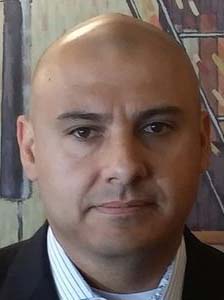
Conference: The importance of Software Projects Management based on metrics
President of COSMIC, Dr. Francisco Valdés Souto is an Associate Professor of the Faculty of Sciences of the National Autonomous University of Mexico (UNAM), he has a Doctorate in Software Engineering specializing in Software Measurement and Estimation at the École de Technologie Supérieure ( ETS), two master Degree in México and France. More than 20 years of experience in critical software development, Founder of SPINGERE, the first Mexican company specialized in software measurement, estimation and evaluation, as well as Founder of the Mexican Association of Software Metrics (AMMS).
He is the main promoter of the issue of formal software metrics in Mexico, promoting COSMIC as a National Standard. His research interests are software measurement and estimation applied to software project management i.e. scope management and economics.

Conference: Hacia un Estrategia de Transformación Gubernamental 2022
Es Ingeniero en Sistemas Computacionales y cuenta con una maestría en Tecnologías de la información, con especialidad en redes de computadoras. Es actualmente Director del Comité de Informática de la Administración Pública Estatal y Municipal (CIAPEM), y consultor en innovación gubernamental y tecnológica.
Se interesa por organizar, promover, implementar y evaluar el desarrollo y operación de nuevos proyectos de innovación; poniendo en práctica conocimientos adquiridos durante sus años de formación y trabajo.
Dentro de su larga experiencia profesional fue Director de innovación gubernamental y gestión de proyectos de la Unidad de Innovación Gubernamental y Mejora Regulatoria, Gobierno del Estado de Hidalgo y Director de Informática en el Municipio de Tulancingo de Bravo.
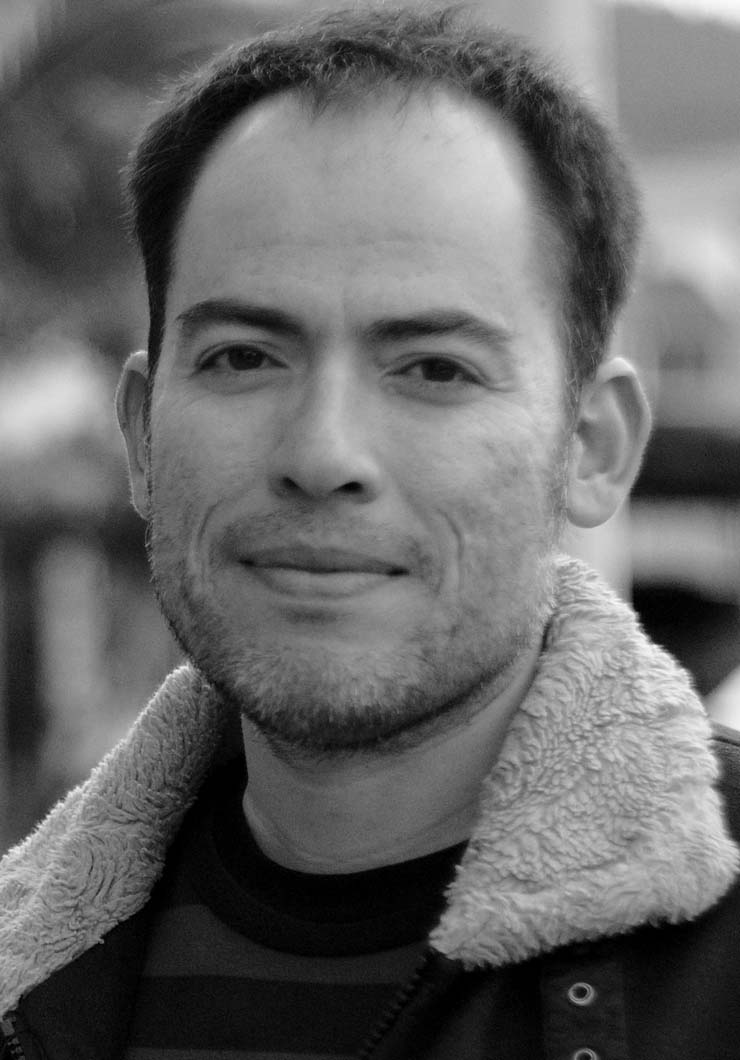
Conference: Lenguajes específicos de dominio para la automatización en el desarrollo de software - caso CRUDyLeaf
Los lenguajes específicos de dominio (en Inglés Domain-Specific Languages, DSL) son lenguajes de programación diseñados particularmente para expresar soluciones a problemas en un dominio particular. En esta charla presentaremos un panorama general de los elementos principales que constituyen un lenguaje específico de dominio, así como ejemplificaremos su aplicación con el DSL llamado CRUDyLeaf. CRUDyLeaf fue creado para automatizar el desarrollo de servicios REST con Spring Boot a partir de la definición de operaciones CRUD definidas en un conjunto de entidades. Finalizaremos la charla discutiendo algunas pautas para el desarrollo de un DSL.
Omar S. Gómez es Ingeniero en Computación por la Universidad de Guadalajara (México), Máster en Ingeniería de Software por el Centro de Investigación en Matemáticas (México), PhD en Software y Sistemas por la Universidad Politécnica de Madrid (España), con estudios de Post-Doctorado en la Universidad de Oulu (Finlandia). Se desempeñó como investigador Prometeo-Senescyt, proyecto del gobierno del Ecuador para fortalecer las capacidades de investigación científica en instituciones de educación superior. Actualmente se encuentra adscrito como docente en la Facultad de Informática y Electrónica de la Escuela Superior Politécnica de Chimborazo. Cuenta con diversas publicaciones indexadas en el ámbito de la ingeniería de software.
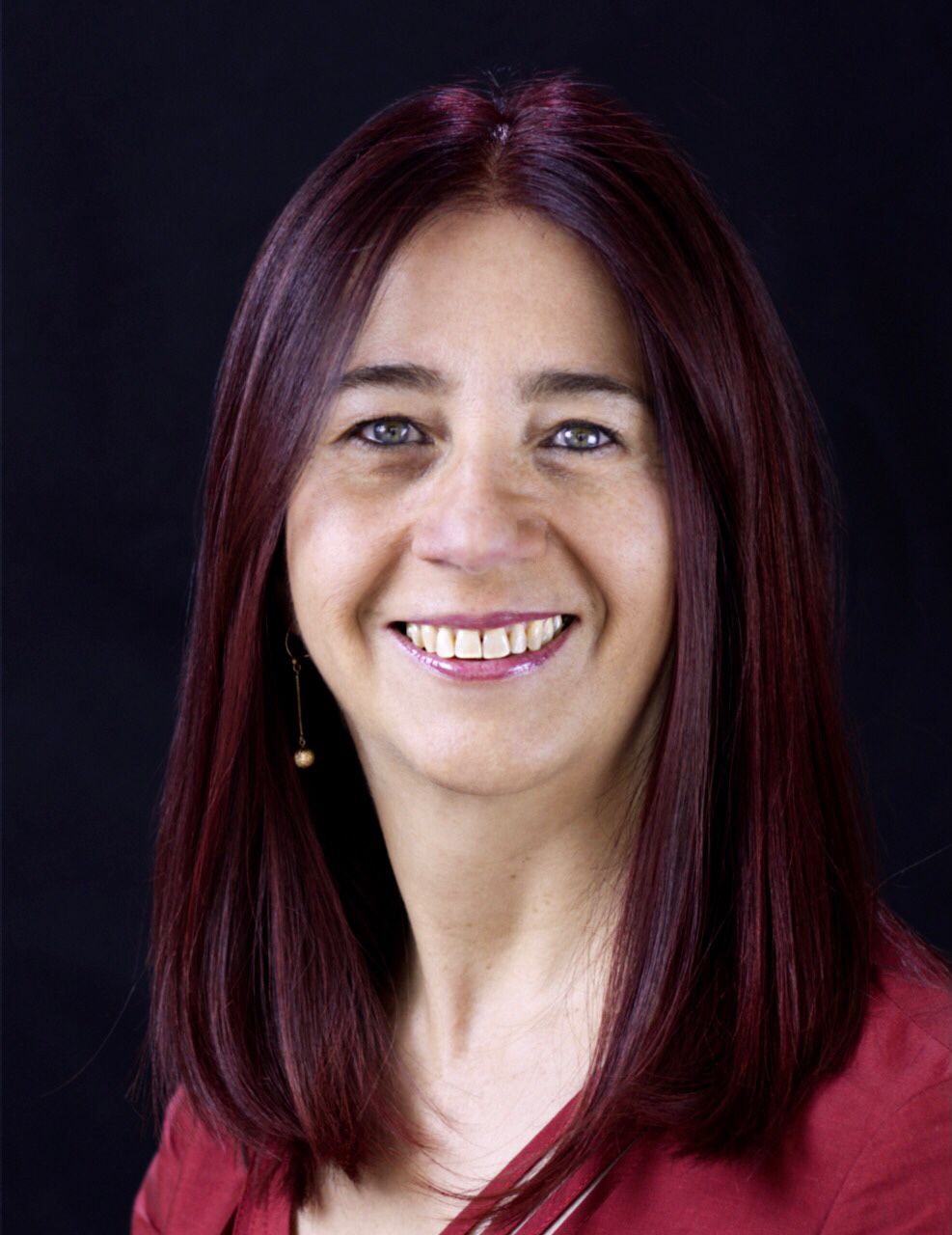
Conference: Indice de Desarrollo Digital Estatal y los indicadores relacionados con Ingeniería de Software
Egresada de la Facultad de Ingeniería de la Universidad Nacional Autónoma de México (UNAM), Salma Jalife es ingeniera en computación y posee una maestría en Ciencias con especialidad en Telecomunicaciones por la Universidad de Colorado en Boulder.
Tiene un profundo conocimiento de políticas y regulación de las telecomunicaciones y radiodifusión y 35 años de experiencia como consultora de tecnologías de la información y las comunicaciones en América Latina, Europa y la región Asia Pacífico.
A Partir de marzo de 2021 crea el Centro México Digital para la Transformación Digital de las micro, pequeñas y medianas empresas.
De diciembre de 2018 a agosto de 2020 ocupó el cargo de Subsecretaria de Comunicaciones de la Secretaría de Comunicaciones y Transportes. Fue durante 12 años Coordinadora de Asuntos Internacionales de CUDI promoviendo el uso de redes de telecomunicaciones académicas en salud, educación y TIC con proyectos de investigación colaborativa nacional, regional y global. De 2003 a 2006, como Comisionada de la Comisión Federal de Telecomunicaciones asume la responsabilidad del Area de Ingeniería y Tecnología.
En el ámbito de la consultoría, en 2007 apoyó al gobierno de Colombia en la transformación del Ministerio de Telecomunicaciones al de TIC mediante una nueva ley y creando la Agencia Nacional de Espectro. Ese mismo año apoyó al gobierno de Costa Rica en la conformación de la Superintendencia de Telecomunicaciones (SUTEL) y el diseño de nuevas leyes y reglamentos en materia de telecomunicaciones y competencia económica.
La Mtra. Jalife es integrante de la Academia de Ingeniería, la Academia Mexicana de Informática y la Red Mexicana de Supercomputación. Además, forma parte de la Sociedad de Exalumnos de la Facultad de Ingeniería de la UNAM, la Internet Society, el Observatorio de Telecomunicaciones, la Asociación Mexicana de Derecho de la Información, la Red Latinoamericana de Tecnología Educativa (RedLATE) y la Federación Mexicana de Mujeres Universitarias.

Conference: Government Digital Service Design and Delivery in COVID-19
During the COVID-19 pandemic government digital teams accelerated their software development frameworks and methods in order to be able to launch new government digital services in a matter of days. During this conference presentation, the keynote will address a set of Case Studies on Latin American Digital Service and Software Development Teams that speed up updates on digital government legislation and actively collaborated with the GovTech ecosystem in order to increase the number of digital government services available online for citizens and enterprises.
Yolanda Martínez has more than 17 years leading digital transformation initiatives and currently collaborates with International Organizations helping governments implement their Digital Agendas. In the international arena, Yolanda led the Office of the Inter-American Development Bank (IDB) in Chile, has participated as OECD peer reviewer for the Digital Government Strategies of various Latin American countries, and as Honorary Advisory Board Member for the Digital Strategy of El Salvador, and the Arab Digital Strategy. In the Public Sector, Yolanda led the National Digital Strategy of Mexico and the Digital City Program of Zapopan at the local level. Yolanda has been recognized by @political as one of the 20 most influential people globally in Digital Government (link).
Yolanda has a degree in Information Systems from the University of Guadalajara (UdeG), a Master's degree in Public Policy from Carnegie Mellon University (CMU), and a Ph.D. in Information and Knowledge Society at the Open University of Catalonia (UOC). She collaborates with the University of Guadalajara as Program Lead for the Center on Knowledge and Information Society.

Conference: Software: to green or not to green, that's the question
That software moves the world is a clear fact. And that it is becoming more and more important, too. However, not everything is positive in the support that software provides to our daily lives. There are estimates that ICT will be responsible for 20% of global energy consumption by 2030, part of which will be due to software.
In this seminar we will review different concepts related to software sustainability. We will look at the two main perspectives of the relationship between software and the environment.
We will show some results of software consumption measurements that we have carried out: on the one hand, cases carried out to raise awareness in society in general about the impact that software has on the environment through examples of software intensively used; On the other hand, examples related to software and software engineering carried out with the aim of creating a set of best practices for the software professionals.
Our ultimate goal is to make you aware of the consumption problem associated with software and to ensure that, if at first, we were concerned with the "what" and later with the "how", now it is time to focus on the "with what".
Coral Calero is Professor at the University of Castilla-La Mancha in Spain and has a PhD in Computer Science. She is a member of the Alarcos Research Group, being responsible of the "Green and Sustainable software" line research, where two main lines of work are developed. The first one addresses issues such as measuring the impact that software and information systems have on the environment and how to improve its energy efficiency, as well as human and economic aspects related to software sustainability. The second major line of work supports all the group's dissemination activities to raise awareness of the impact that software has on the environment. She holds the professional certifications PMP (Project Management Professional), Scrum Master and Scrum Manager. Contact her at Coral.Calero@uclm.es.
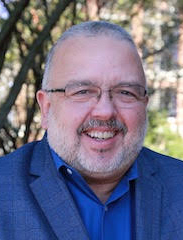
Conference: The Ideology of Monolingualism in User Interface Design and Development
Why are we building computer systems that force bilingual people to use only one language? Over 60% of the world population speaks more than one language. Bilingual speakers are known for fluidly switching between languages. Yet computer systems, from desktops, to phones, to voice assistants force us to choose one language. At a time when information and communications technology could help build bridges across cultural groups, we are failing to reach out and close that gap. Through numerous examples, I will show how the Ideology of Monolingualism is pervasive in user interface design and development. The resulting monolingual computer has very poor usability for bilingual users. The problems range from poor pronunciations of names, poor voice recognition of ethnic names, spell checkers that blindly ignore one language, to news feed applications that force the user to consume news in one language at a time. Even major search engines serve you results in one language at a time. This state of affairs has serious implications for collaboration and coexistence of an ever growing bilingual population.
Dr. Manuel A. Pérez Quiñones is Professor of Software and Information Systems at the University of North Carolina at Charlotte (UNCC). His research interests include human-computer interaction, CS education, and diversity issues in computing. He holds a DSc from The George Washington University and a BA & MS from Ball State University. He has over 100 refereed publications. He has served on several boards for nonprofits, advisory board for national organizations, chair/president of Hispanic Caucus at two institutions, conference leadership for Tapia and SIGCSE conferences, and held several administrative positions in academia. He has received several recognitions for his service in diversity in computing, among them: ACM Distinguished Member (2019); CRA Nico A. Haberman award (2018); Richard A. Tapia Achievement Award (2017). He is originally from San Juan, Puerto Rico.
Paper length: Works of all the categories will be submitted as full papers, from 6 pages and up to 10 pages. Papers will be presented in English or Spanish.
Papers must be original works, not have been published before, nor subjected simultaneously to other events.
Submitted papers will be evaluated by an international reviewers committee composed of renowned researchers and professionals, which can be consulted on the Web site of the conference.
Send your papers using the following link to EasyChair
To write your paper, please use the official template:
For sending final version, please follow the directions from IEEE Conference Publishing Services (CPS). CPS WILL BE CONTACTING THE AUTHORS OF THE ACCEPTED PAPERS SOON.
* A third paper must paid full fee
* A third paper must paid full fee
1095 K Street, Suite B, San Diego, CA 92101
Website:www.sdgku.edu
Tel: (619) 934-0797 / Toll Free (800) 215-0541
Email: info@sdgku.edu
Hours: Monday – Friday, 9 AM – 5 PM PST
CONISOFT prohibits retaliation against any member here at CONISOFT who reports or participates in an investigation of a possible violation of our Code, policies, or the law. If you believe you are being retaliated against, please contact our Ethics & Compliance representative.
Download
















 J. Reyes Juárez Ramírez (General Chair)
J. Reyes Juárez Ramírez (General Chair)
 reyesjua@uabc.edu.mx
reyesjua@uabc.edu.mx
 + 52 (664) 9797500 EXT. 54335
+ 52 (664) 9797500 EXT. 54335
 Universidad Autónoma de Baja California
Universidad Autónoma de Baja California
Facultad de Ciencias Químicas e Ingeniería